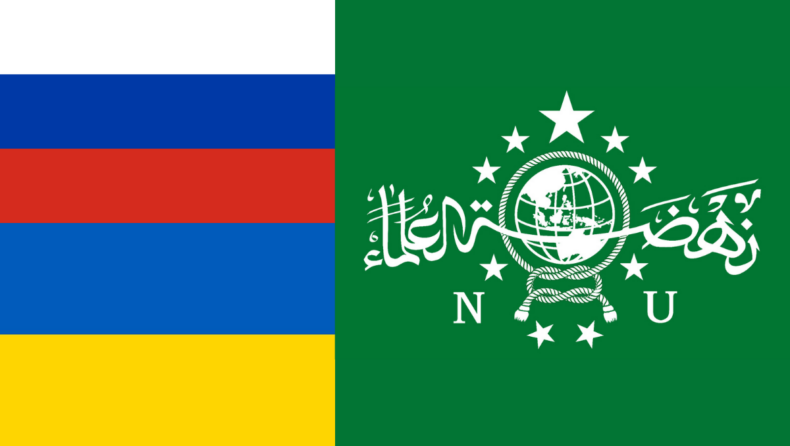In recognition of its political clout among leaders of Southeast Asia’s largest economy, Russian and Ukrainian envoys to Indonesia are courting the country’s largest moderate Islamic party, Nahdlatul Ulama (NU).
Ukraine’s envoy met with Yahya Staquf, the newly elected NU leader, last week. The Russian delegation arrived at NU’s Jakarta headquarters the next day.
Following the meeting, Staquf described the events in Ukraine as a “war” and urged Russian President Vladimir Putin to “end the war now,” adding that “dialogue” might solve all problems.
When it first spoke out against the conflict, the Indonesian government avoided criticizing Russia by name and backed a UN resolution condemning Moscow’s conduct. Singapore remains the only Southeast Asian country to impose sanctions on Russia alone.
“I strongly hope NU, Yahya, and all Indonesian Muslims will speak up, say a prayer… contribute in bringing this war to a stop, to relieve the pain of Ukrainian people, particularly the agony of our 2 million Muslim brothers in Ukraine,” Ukrainian Ambassador Vasyl Hamianin stated after the meeting.
“As the whole of Ukraine is on fire,” Hamianin remarked, “many people are suffering horribly in numerous cities.”
NU is the world’s largest Muslim organization, with 90 million followers in the world’s most populous Muslim nation of 270 million.
Zachary Abuza, a Southeast Asia professor at the National War College in Washington, said NU sought to “find a medium ground” because of its long history of humanism and concern for human rights.
Indonesia was “a tiny trading partner” for Russia, according to Abuza, and Moscow’s attempt to turn Jakarta into a key arms client had failed.
“For Russia, not directly condemning them or even using the phrase ‘invasion’ is enough,” Abuza added, describing Indonesia’s posture on Ukraine as “sheer diplomatic timidity.”
In the mid-2010s, it invited officials from various factions, including the Taliban, to a meeting in Jakarta, where they learnt how to promote nonviolent conflict resolution diplomacy from NU leaders in order to ease the violence in Afghanistan.
President of NU, Yahya Staquf
Gus Yahya, a notable Muslim scholar, is also known as the 56-year-old. He hails from a well-respected priest family. He was previously the spokesman for the late president Abdurrahman Wahid, and is a supporter of interfaith cooperation and minorities’ protection.

Yaqut Cholil Qoumas, his younger brother, is the government’s Minister of Religious Affairs.
He warned that the invasion had the potential to “undermine stability within the Islamic world by normalizing conflict amongst governments.”
The response of the international community was critical in determining whether the post-World War II international order could be maintained. He stated that the Russian invasion posed a huge challenge to the world’s governments, and that a “strong response” was required.
He cited the Fethullah Gulen movement’s “Dialogue Among Civilizations” effort, as well as programmes in the United Arab Emirates and Qatar, as examples of how to promote “moderate Islam” abroad.
Published By: Manan Khurana
Edited By: Khushi Thakur













